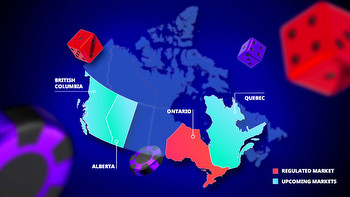Analyzing the Evolution of Online Gambling in Ontario

The online gambling industry in Ontario has evolved in many positive ways over the years. Since the regulated iGaming market came live in 2022, the provincial government has developed and executed operating agreements with multiple private operators to provide gambling services to residents. Through iGaming Ontario, a subsidiary of the Alcohol and Gaming Commission of Ontario (AGCO), the government conducts and manages internet gaming following Canada’s criminal code.
In this article, we’ll touch on such aspects like the current regulatory framework, technological advancements, and make recommendations on how market trends can be leveraged to maximize growth.
The iGaming industry is highly regulated and is touted as one of the most difficult to penetrate. The Alcohol and Gaming Commission of Ontario (AGCO) plays a vital role in providing oversight as well as putting forth the regulatory framework guiding all online gambling activity in the province. As part of its responsibilities, AGCO also ensures fairness, integrity, and safe gambling.
Currently, the regulatory framework covers six key elements, ranging from the Criminal Code to the Gaming Control Act and Standards, but there remains a problem. CasinoRIX experts observed the Gambling market in Ontario and have discovered that many offshore online casinos available to players operate on different regulations that may not be extensive. The need for a more comprehensive framework is underscored by this challenge, and updates to legislation are being sought by the provincial government to address this.
Online casino gambling has always been at the forefront of technological innovations, considering how well it has kept up with the times. The use of Artificial Intelligence (AI) has facilitated better personalizations that enhance player experiences through predictive analytics, tailored promotions, and customized game recommendations.
Blockchain technology has also been fully incorporated into online casino gambling. Decentralized virtual currencies like Bitcoin and Ethereum offer more secure, anonymous, and efficient transaction methods. The demand for this form of payment is high for reasons ranging from the speed of settlements to low transaction fees and privacy. Mobile gaming has attracted more players to the industry, and as technology continues to advance, online casinos will keep adapting to remain one of the most recognizable sources of digital entertainment.
As with any business built on the unwavering loyalty of end-users, player behaviour plays a critical role in the success of the iGaming industry. For instance, personalization, game customizations, and the desire for social interaction online, are key interests among younger gamers. A survey of online gamers in Canada showed that people aged 30 to 50 played at least an hour of online games each week. Statistics also show that at least six out of ten Canadians have spent money on gambling, with the average Canadian spending $6.75 per month.
A look at spending shows that the majority of gamers do not fall into the high rollers category, implying that casino games should be designed with lower wager limits to attract more players. Also, incorporating more avenues for social interaction in online casinos should be a priority, considering how important it is for a good percentage of consumers.
Given the deep historical culture of gambling in Ontario, it’s no surprise that it is currently the only Canadian province with an open, regulated iGaming market. While there has been applause for the management of the industry, there has also been cautions against complacency in the ever-changing marketplace. With such challenges as regulatory compliance among operators, the risks of problem gambling, and maintaining healthy competition, more preventive education is paramount.
Online gambling, as an internet-based activity, also faces the potential risk of being subject to cybersecurity threats. Although players are mostly the victims of these, operators are not exempted. Factors such as technological disruptions could very well impede an operator’s ability to provide seamless service. Industry stakeholders, therefore, need to work collectively in first understanding these issues and creating effective solutions to tackle them.
Since the launch of Ontario’s regulated iGaming market in 2022, iGO has helped 52 operators offering more than 70 unique websites go live. Following the noticeable market trends and challenges, the iGO continues to work with the government and operators to establish market conditions that weaken the illegal market and support economic development.






































